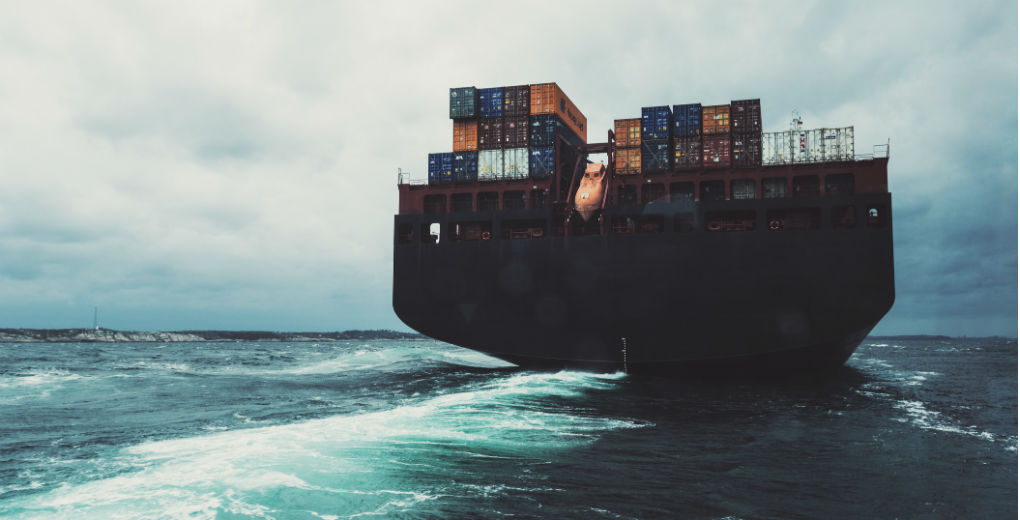The shipping industry carries 90% of world trade but the sector faces significant threats from developing technology and cyber risk. The industry has always been faced with uncertainty surrounding human error, unpredictable weather conditions and mechanical failure. However, it’s now becoming increasingly hit with new risks from fast-emerging technologies, which means companies need to protect themselves against unfamiliar territory and unprecedented risks.
Cyber attacks
The threat of cyber-attacks is imminent across all industries with any type of cyber platform and the motivation behind the attacks is becoming increasingly complex, often steering away from data theft. Hackers now look to take control of vessels in order to inflict damage on both the property and operation of the vessel.
The maritime industry is particularly vulnerable because ships are often inadequately prepared against such an attack, leaving them soft targets for potential criminals. There is usually a lack of encryption within critical systems and as cyber criminals know this, the industry looks more enticing.
Whilst the risk of a cyber-attack has been present since computers came into existence, it’s increased exponentially since then, especially since the rise of the Internet. Critics believe that the cyber protection ships currently have is insufficient to meet the risks of the 21st century and the industry needs to update along with the threat. In particular, systems such as GPS (Global Positioning System), AIS (Automatic Identification System) and ECDIS (Electronic Chart Display and Information) have all been identified as vulnerable to a cyber-attack.
If such a system is infiltrated it can prevent a ship from receiving movement information, make phantom vessels appear, stage fake emergencies and make it appear to other ships that a vessel is or isn’t in the correct location. The motivation behind such attacks can vary from attempts to seize cargo or commandeer the vessel, extorting companies for money in return for the control of the ship, and more.
In 2017, a global transport firm fell victim to one such attack, resulting in the temporary shutdown of some of its port terminals and widespread outage to its systems. This incident reportedly cost the company between £250m-£300m.
Autonomous vessels
We’ve seen the rise of autonomous cars in the last few years, with driverless taxis already being tested in some major cities. However, boats are not far behind and The Yara Birkeland, a fully autonomous electric container ship, is due to hit the water in 2019. The producers aim for the entire operation of the ship to be fully automated, from the process of loading and unloading to the journey itself.
Whilst the concept of this vessel has a number of benefits—producing zero emissions, reducing the number of necessary journeys per year—many have doubts about the practicality and safety of autonomous shipping. What with the very real threat of cyber hacking, industry professionals are worried that the lack of human intervention could leave ships more vulnerable to these types of attacks and could result in the loss of more ships and cargo than ever before.
Those who work in the maritime industry are also concerned that the presence of unmanned ships could have a negative impact on the safety of the seas. According to a survey of 1,000 maritime professionals carried out by trade union, Nautilus International, 85% of respondents considered unmanned automated vessels to pose a significant threat.
Piracy
Pirates are able to hack into a vessel’s cyber systems in order to identify which ships are carrying valuable cargoes and which have minimal on-board security. In the future, this could even extend to them being able to identify unmanned automated vessels which would more vulnerable to hijack once identified. Pirates often choose their stolen goods carefully, targeting only containers holding valuable goods which they can often take without detection. Following their crime, they frequently attempt to delete all data for the ship in order to avoid an audit trail.
Pirates are not often highly IT-literate, however. Due to the outdated nature of cyber systems in the maritime industry, pirates have been able to conduct attacks without having the same knowledge as more developed cyber hackers.
Prevention
The best way to prevent cyber-attacks is to ensure that your cyber systems are up to date and that your staff are fully trained on cyber security. Small actions such as opening an infected email or attempting to charge their personal device on-board a vessel could leave your ship vulnerable to a cyber-attack which is why it’s important your staff are well aware of these risks.
It’s also more important than ever to have fully comprehensive cyber insurance for your vessel, so if something should happen, you’re covered financially against the repercussions. If you have any questions or queries surrounding this or you’re wanting to check or update your existing insurance, contact the team at Safeguard today. We’re offering a reduction of 15% off your current insurance*, for all new maritime customers.
Contact us today on 01322 337557 or email sales@safeguardinsurance.co.uk.
*Subject to terms and conditions

